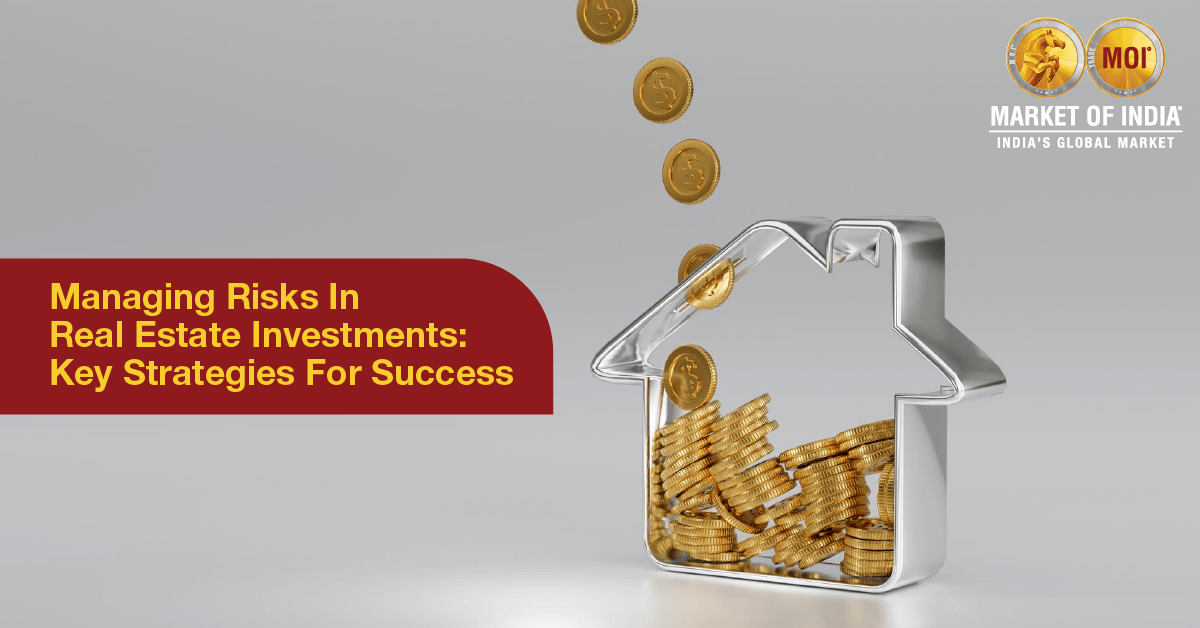Introduction
Investing in real estate is like embarking on a grand journey. However, much as when planning a trip, a guide is essential for avoiding unanticipated roadblocks. That is when risk management comes into play! Today, we’re going back to fundamentals, delving into the core concepts that will serve as your trusted guide, making real estate investment less intimidating and more profitable. Let’s analyse these tactics and pave the path for a more rewarding and lucrative real estate investment journey.
Importance of risk management in real estate investments
- Enhanced Return on Investment (ROI): Risk mitigation helps investors focus on optimising returns by removing uncertainties that could otherwise erode profits, improving total ROI.
- Long-Term Asset Value: By minimising unanticipated obstacles or depreciating variables, risk management practices sustain and potentially boost the long-term value of real estate assets.
- Market Stability and Adaptability: Anticipating and managing risks helps to improve adaptability to market swings and economic shifts, creating resilience and stability in various market situations.
- Financial security and consistency are ensured through proactive risk management, which prevents unplanned financial obligations or disruptions that could damage cash flow and financial stability.
- Compliance and Legal Protection: Adequate risk management practices ensure compliance with regulatory requirements, mitigating legal risks and potential liabilities associated with non-compliance.
- Optimised Decision-Making: Assessing and managing risks provides investors with a clearer understanding of potential challenges, enabling informed decision-making and strategic planning.
Risks in Real Estate Investment
1. Market Volatility and Economic Fluctuations
Picture the real estate market as a roller coaster. It zooms up at times and then drops dramatically. These erratic movements in the market are referred to as market volatility. Changes in demand, interest rates, and economic conditions can all impact property values. The real estate market experiences highs and lows in the same way that the stock market does. Keep an eye on these variations while investing.
2. Regulatory and Legal Risks
The bureaucratic side of real estate can be daunting. Regulations and laws in this industry might be complicated. Legal difficulties may also arise, such as property boundary or contract disputes. The various legal risks are as follows:
- Zoning and land use regulations
- Permitting and licence requirements
- Property rights and title issues
- Tax and assessment changes
- Government regulations and liability risks
To effectively traverse the complexities of the real estate sector, it is critical to understand and handle these regulatory and legal risks through extensive due diligence, legal consulting, and proactive compliance measures.
3. Property Deterioration and Maintenance Issues
Maintaining a property’s structural integrity is paramount in real estate investment. Weather conditions, outdated infrastructure, and normal use all contribute to the wear and strain of properties over time. This deterioration can appear in various ways, from simple issues like peeling paint or cracked tiles to more severe difficulties like plumbing or electrical problems.
Failure to address these maintenance issues immediately can result in worsened damage, lower property value, and severe safety hazards. Regular inspections and preventive maintenance routines are critical for identifying and addressing problems as they arise, mitigating potential dangers and protecting the property’s value over time. Setting up a well-structured maintenance plan, allocating finances for repairs and upgrades, and hiring reliable contractors or property management services will help you manage these issues successfully.
4. Financing and Interest Rate Risks
Interest rate fluctuations can significantly impact the cost of borrowing for property acquisitions and ongoing mortgage payments.
For example, a rise in interest rates can result in more significant borrowing costs, hurting mortgage affordability and diminishing property demand. Lower interest rates, on the other hand, may encourage property demand but cause vulnerability if rates suddenly rise, resulting in increased expenses for variable-rate loans or adjustable-rate mortgages.
Mitigating financing and interest rate risks necessitates meticulous financial planning, which includes stress-testing economic models against various interest rate scenarios. It can consist of choosing fixed-rate mortgages to ensure payment stability, diversifying investment portfolios to decrease exposure to interest rate volatility, and remaining updated about economic indicators and monetary policy changes that may affect interest rates.
Strategies to Mitigate Risks: Effective strategy is a cornerstone for prudent investment decisions that minimise uncertainties and fortify real estate portfolios against potential challenges.
- Diversifying Investment Portfolios: Spreading investments among several sorts of assets or places. Diversifying reduces the chance of suffering a significant loss due to market volatility or regional downturns. If one market sector underperforms, other investments in the portfolio may balance it out, protecting your overall gains.
- Thorough Due Diligence and Legal Compliance: This technique emphasises extensive study and investigations before making any real estate investment. It includes investigating property histories, market trends, and potential threats and assuring legal compliance. This due diligence assists in identifying potential traps, ensuring that investments are made on a solid legal and financial foundation, and reducing the likelihood of unforeseen legal challenges or economic failures.
- Proactive Maintenance Measures for Asset Preservation: This includes frequent examinations of structural integrity and specialised systems like lifts, fire safety systems, wi-fi enabled facilities and commercial-grade HVAC systems. Scheduled maintenance guarantees that firms using the space can function without interruptions caused by facility difficulties. Preventive maintenance also helps to avoid costly repairs and guarantees compliance with safety rules, protecting the property’s value and desirability to potential business renters or buyers.
- Exploring Flexible Financing Options: This could include commercial mortgages, lines of credit, or financing packages with adjustable repayment schedules, interest rates, and loan-to-value ratios. Furthermore, investors may consider bridging loans or mezzanine finance for short-term financing or when acquiring buildings that require improvements before standard funding is available. These commercial real estate flexible financing options may optimise cash flow, reduce risk exposure, and capitalise on opportunities in the ever-changing retail property market.
Unlocking investment opportunities with the Market of India
Explore commercial investment opportunities at our integrated township’s marketplace, strategically positioned for optimal connectivity and convenience. Explore a diverse range of ancillary services, boasting over 5000+ shops and meticulously designed loading and unloading facilities tailored to enhance your commercial endeavours. For further details regarding investment opportunities, visit our website or contact us at 7358111999.
Wrapping Up
Understanding risk management in real estate ventures is critical for long-term success. Diversifying portfolios, undertaking rigorous due diligence, proactive asset maintenance, and exploring flexible financing solutions contribute to a solid framework. By executing these tactics diligently, investors may traverse the volatile real estate landscape, secure their positions against uncertainties, and pave the road for resilient and lucrative investment endeavours.
FAQs
1. How does diversifying my real estate portfolio reduce risk?
Risk is distributed over multiple properties, reducing the influence of market volatility on overall profits.
2. Why is thorough due diligence crucial in real estate investments?
Comprehensive due diligence detects potential concerns, allowing for informed investment decisions and reducing unanticipated risks.
3. How can proactive maintenance benefit commercial real estate investments?
In commercial real estate, proactive maintenance preserves property value, ensures ongoing operations, and attracts new tenants or buyers.











0 Comments